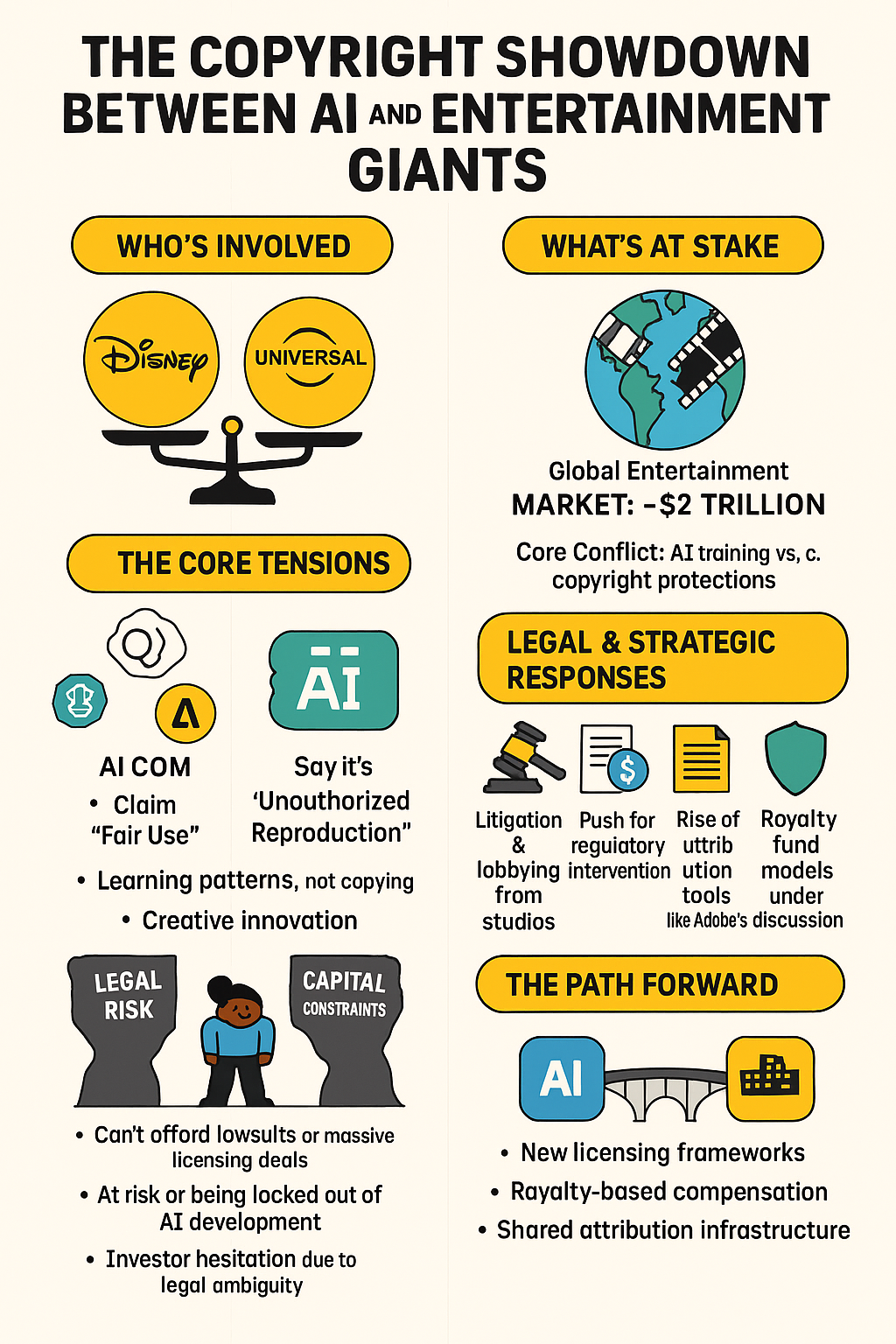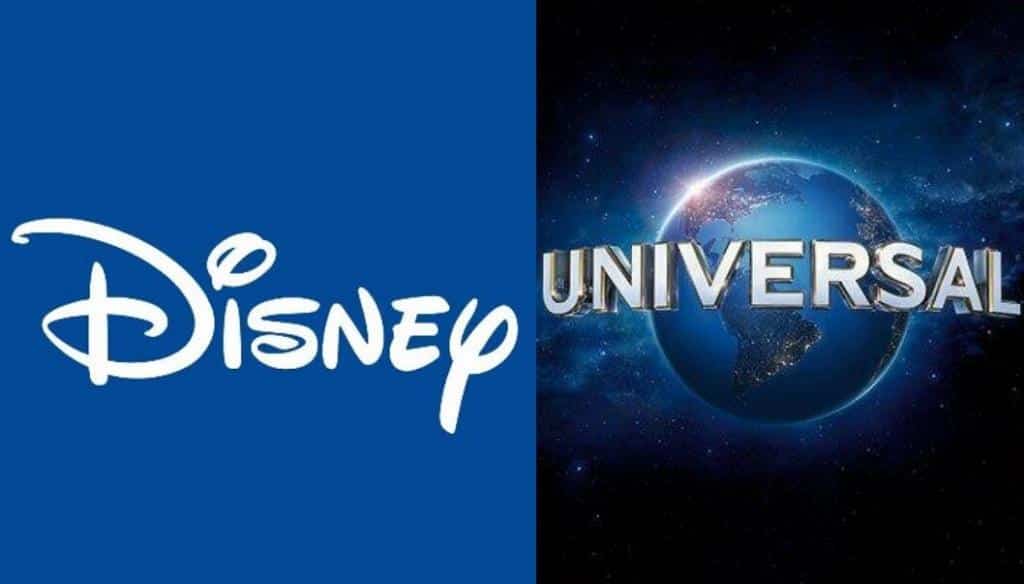Entertainment Giants Disney and Universal Studios Draw Battle Lines Against AI Content Generators
Why Entertainment Giants Disney and Universal Studios Are Suing AI Companies Over IP Theft
Disney and Universal Studios have initiated a coordinated offensive against artificial intelligence companies they claim are illegally training generative AI models on copyrighted material. The entertainment conglomerates are mounting legal challenges and pushing for regulatory intervention as AI-generated content increasingly mimics their valuable intellectual property – from beloved animated characters to film dialogue and visual styles.
This confrontation marks a critical juncture for creative industries wrestling with fundamental questions about ownership, attribution, and fair use in an era where machines can produce content that previously required human creativity. The battle represents an existential question about the economics of creative production in the AI age.
The Copyright Clash Putting $2 Trillion in Creative Revenue at Risk
What's at stake transcends quarterly earnings reports. The global entertainment industry, valued at roughly $2 trillion, has historically relied on copyright protections to monetize creative works. AI threatens to upend this model by allowing mass production of derivative content that, while not identical to protected works, unmistakably evokes them.
When unauthorized AI reproductions can be created instantly, at scale, and for free, they fundamentally undermine the economics of creativity. The incentive to invest in original content creation disappears if there's no feasible way to protect that investment. "Piracy is piracy, and the fact that it's done by an AI company does not make it any less infringing," Horacio Gutierrez, General Counsel at Disney, shared in a statement to Reuters.

The confrontation centers on how AI models learn. Companies like Anthropic, OpenAI, Midjourney, and Stability AI develop their models by training them on vast datasets that include copyrighted works. These companies have generally claimed protection under fair use doctrine – the same legal principle that allows search engines to display thumbnail images or academic researchers to analyze copyrighted texts.
Can AI Training Be Considered Copyright Infringement?
But entertainment companies argue that this AI training goes far beyond traditional fair use boundaries. When an AI can generate a reasonable facsimile of Mickey Mouse or create a story written in J.K. Rowling's distinctive style after being trained on those works, the line between inspiration and appropriation blurs significantly.
Entertainment companies don't believe that AI companies want to have it both ways. They cannot claim their systems are simply learning patterns, like humans do when reading books or watching films. Yet they're also selling products whose primary value comes from their ability to mimic specific creators' work.
This tension extends beyond entertainment into music, journalism, visual art, and software development – any field where creative expression receives copyright protection.
Will Copyright Laws Kill AI Startups Before They Scale?
For AI startups, this battle presents an immediate existential threat. While tech giants like Google and Microsoft have the resources to negotiate licensing agreements or weather extended litigation, early-stage companies face impossible choices: risk infringement claims, limit their models' capabilities by using only openly licensed data, or attempt costly licensing arrangements that may be financially untenable.
There's a very real risk that only the largest companies will be able to build competitive AI systems if we don't resolve these issues. The uncertainty alone is preventing investment in smaller players who can't demonstrate they've solved the copyright problem.
Some startups are proactively developing solutions. Initiatives like the Content Credentials system, backed by Adobe and the Content Authenticity Initiative, aim to create attribution infrastructures that could enable fair compensation models. Others are building systems designed to detect and filter copyrighted content during both training and generation phases.
How AI and Copyright Can Coexist in the Creator Economy
Entertainment companies aren't categorically opposed to AI. Disney itself has invested in AI technologies for production efficiency and personalized experiences. What these companies seek is a framework that acknowledges creators' rights while enabling technological progress.
There is an ongoing need to bridge 20th-century copyright concepts with 21st-century technological realities which might require entirely new compensation models – perhaps a streaming-like royalty system where AI companies pay into a fund distributed to creators whose work influenced their models.
As this battle escalates through courts and legislative bodies, one thing becomes clear: the outcome will fundamentally reshape creative economies. The confrontation between Disney, Universal, and AI developers rises above protecting Mickey Mouse and more towards defining who benefits from creativity in a world where machines can learn to create.
For startups navigating this terrain, the watchword must be caution tempered with innovation. Those developing new approaches to attribution, compensation, and collaborative creation may find themselves uniquely positioned as bridges between creative traditions and technological futures. The question isn't whether AI and entertainment will coexist, but on whose terms this convergence will occur.
